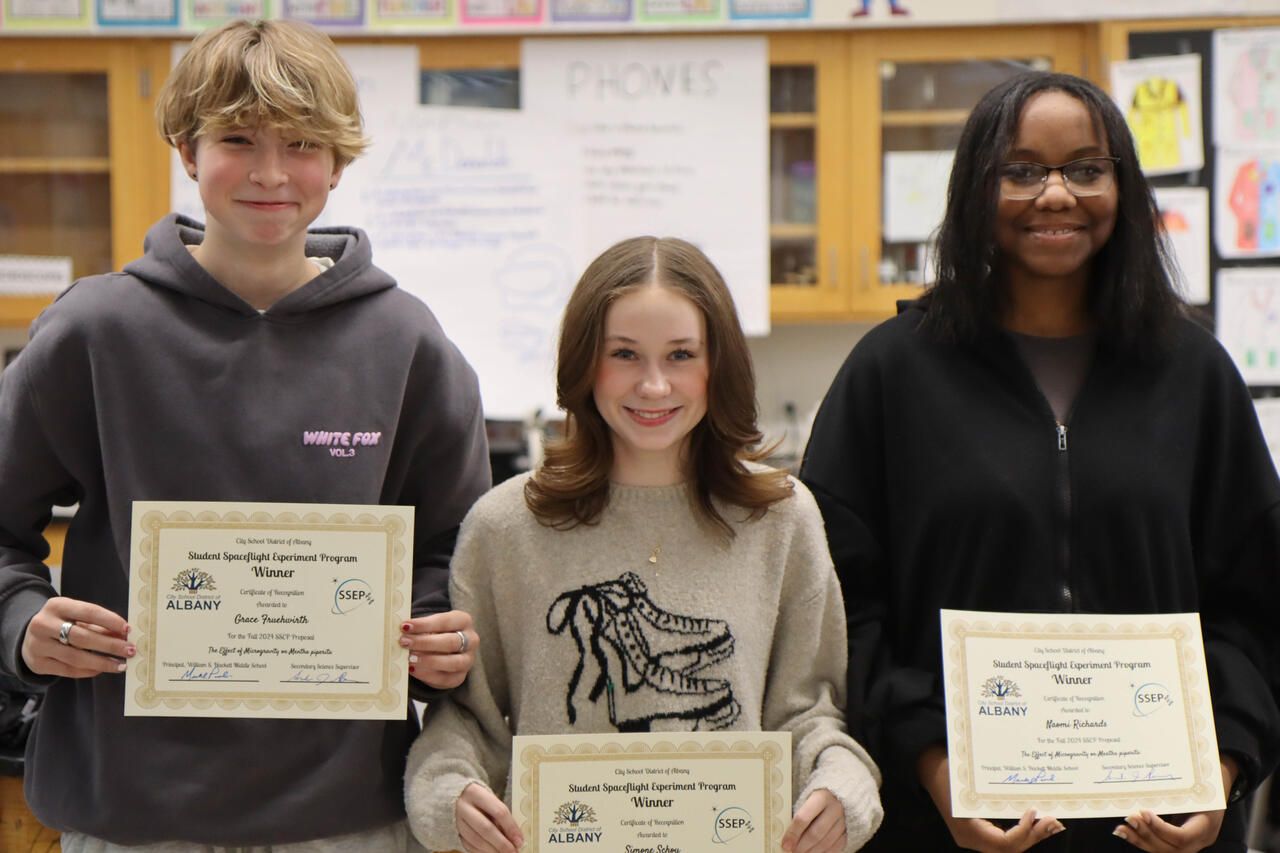HACKETT SCIENCE HEADS TO OUTER SPACE -- AGAIN!

For the fourth year in a row, a team of eighth-grade scientists from William S. Hackett Middle School has seen their experiment fly high into space. The proposed research by Grace Fruehwirth, Naomi Richards, and Simone Schou will once again be conducted on the International Space Station this spring.
Astronauts are set to conduct research on "The effect of microgravity on mentha piperita", or how weightlessness affects the growth of peppermint seeds. The proposal was designed by the trio, all students of Allison Sheehan, who were recognized during class for their efforts.
Middle School Science Supervisor Amanda Powers presented certificates and offered congratulations, acknowledging the team's participation in the Student Spaceflight Experiment Program (SSEP). SSEP is an experiment-design competition that brings student scientists from around the world together to design experiments testing the effects of microgravity on specific scientific variables.
For Hackett students, this marks their third year in a row participating in SSEP. In addition to Fruehwirth's team, two other groups of students were recognized Tuesday as district semifinalists. These teams presented research proposals titled "The impact of microgravity on epinephrine's chemical composition" and "The effect of microgravity on bacterial germination of listeria monocytogenes on pome fruits."
District judges forwarded the top three submissions to SSEP, which selected Fruehwirth's project for its unique exploration of peppermint seed growth in zero gravity. This achievement marks a triumph for Hackett students and their guiding teachers, who continue to push boundaries in scientific exploration.
"We are thrilled that our students have once again participated in this prestigious program," said Powers. "Their hard work and dedication will contribute significantly to our understanding of the effects of microgravity on plant growth."
As Fruehwirth's team prepares for its space-bound experiment, they join a select group of students who have seen their research take off into outer space four years running.
